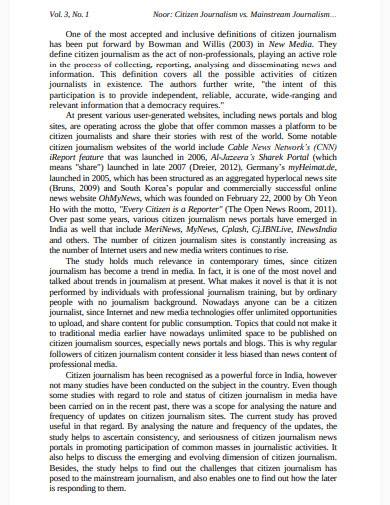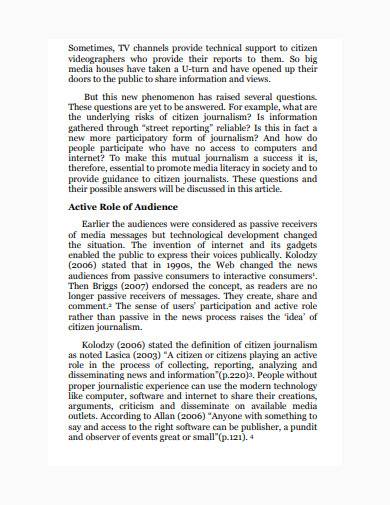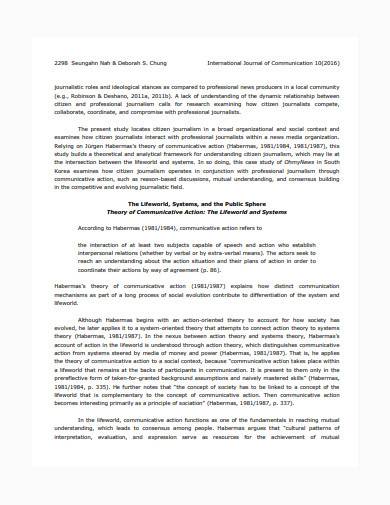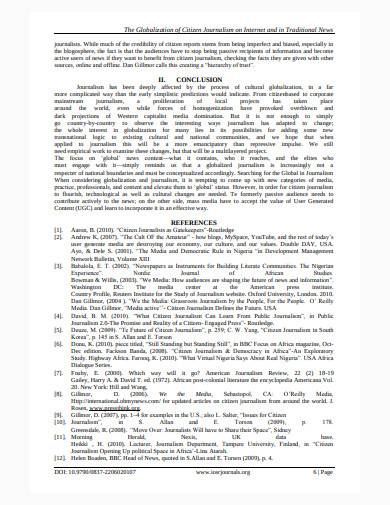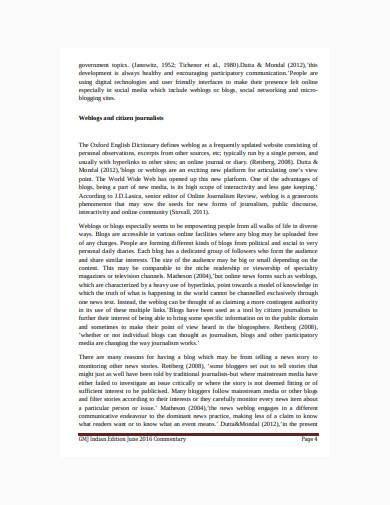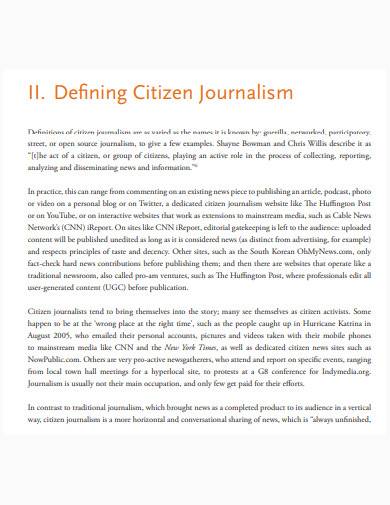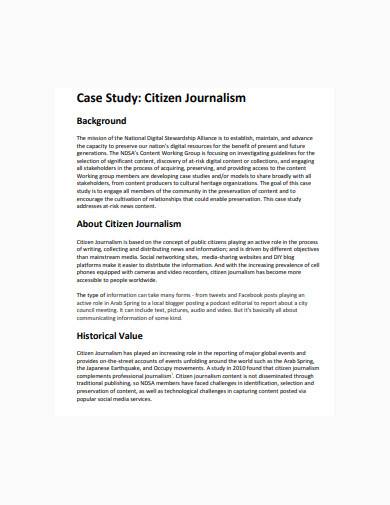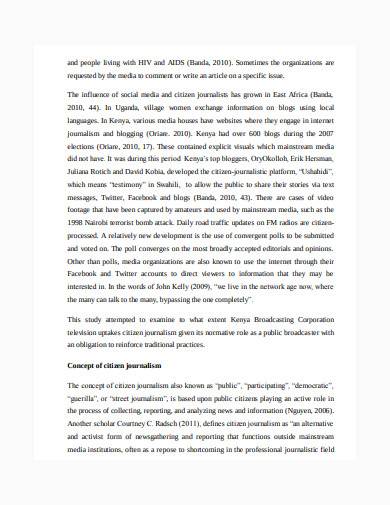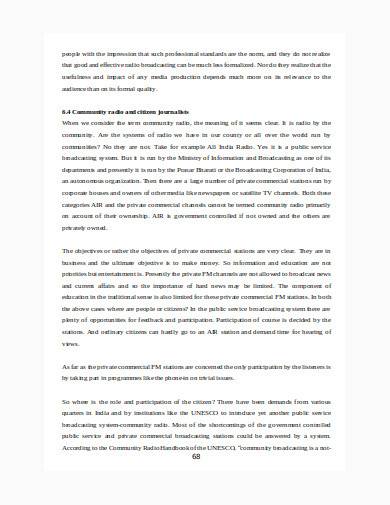The world today is experiencing a lot of ups and downs. It won’t do anyone any good if they stay blind to the rollercoaster of events. With the current social climate, having information is crucial to get through everyday life. Being ignorant and uninformed is no longer excusable. Newspaper headlines and news programs aren’t your only source of data. Discussions on various topics are happening on different platforms, and almost everyone has something to say. It is your job to listen and speak up. Sharing information with your fellowmen is part of everyone’s social responsibility. This gives people a way to understand situations through others who share the same perspective. In technical terms, this is what you call citizen journalism.
A Breakdown on Citizen Journalism
With everything that’s happening around the world, you need to have a reliable source of information. Even when people run to news reports for their daily dose of information, there are times when they need to learn the facts from a source they can relate to. That is why there is citizen journalism. This is a concept of journalism that believes that you don’t have to be a professional to disseminate information. In the age of social media, people can now post their thoughts and knowledge on a given topic for everyone to see. This starts a conversation where people share their sides of the story and offer new perspectives that news outlets would be unable to broadcast.
History of Citizen Journalism
Even before the invention of the internet, citizen journalism has already made its rounds in society. Its first known usage was also during the founding of the United States. It traces back to when people like Alexander Hamilton, Thomas Paine, and some anonymous authors of the Federalist Papers decided to create their own publication. During this time, advances also helped them distribute their works. They relied on postal systems, the telegraph, and the phone messages to reach their target audience. You can enumerate a lot of notable moments where citizen journalism was a big part of current events. In the ’60s, many citizens were able to videotape the assassination of President John F. Kennedy. And two decades later, people were pointing their cameras to Rodney King as he experienced police beating in Los Angeles.
People gained the ability to share their thoughts to a much larger scale. Even so, distribution channels were still minimal. When the World Wide Web became everyone’s go-to platform, controlling how people spread information also became easier. No longer did people put all their trust in traditional journalism; instead, they just had to scroll through Twitter to read the latest updates. The accessibility of information also had people discuss its reliability.
The Voice of the People
As people reach the apogee of social media, an ordinary citizen can give himself the power to become a journalist. Anyone who posts something can make himself look like he knows what he is talking about. But who is to say that the people around you aren’t reliable sources? Society is now smarter and more conscious of the various situations happening all over the world. Every now and then, you might get an minimalist infographic or poster telling you what to do and who to believe. It’s not wrong to assume that citizen journalism helps people be in the know. People in photography would post pictures that represent the situations happening in a particular area. Citizen journalism amplifies the voice of the people. Those who have something to say are no longer afraid to speak up. This form of journalism can shift the essence of a cartoon into some kind of revolution and expression. This marks the full utilization of freedom of speech.
10+ Citizen Journalism Samples in PDF | DOC
Information is everywhere. You can find facts and statistics worksheets about something online. Even your friends on social media can provide you with information you didn’t know you needed. In journalism, people refer to this as citizen journalism. To give you more insight into what citizen journalism is, here are multiple citizen journalism samples you can check out.
1. Citizen Journalism Sample
2. Citizen Journalism Template
3. Citizen Journalism Example
4. Online Citizen Journalism Template
5. Citizen Journalism in PDF
6. Formal Citizen Journalism Sample
7. Sample Citizen Journalism Template
8. Citizen Journalism Case Study Sample
9. Basic Citizen Journalism Sample
10. Impact of Citizen Journalism Template
11. Citizen Journalism in DOC
Tricks to a Triumphant Citizen Journalism
When you know you have information to share, you shouldn’t think twice when sharing it. Not everyone has access to the latest reports, so you should use your platform to inform everyone. It’s easy to believe that you need the best gadgets to post something online, but there are actually a few tricks to help make your case report flawless just by using your phone.
1. Hit Them With Your Best Shots
In the age of modern information technology, you shouldn’t shy away from utilizing your gadgets. If you can take selfies to post on your page, you could surely post a photo of a current situation as well. Your photos can help people visualize what is happening. Make sure it’s clear and unmanipulated. The more pictures you send, the easier it is for people to understand the situation.
2. Test Out Your Video Setting
When it comes to utilizing the camera on your phone, taking videos would also be a helpful act. A ten-second clip is enough for anyone to understand the situation. Your videos are also useful for pointing out how something happened and if there factors that aren’t noticeable at first glance.
3. Save the Best Apps
When people hear the word “app,” they immediately assume you are talking about mobile games. There are actually numerous apps you can use for citizen journalism. Voice recorders, video editors, all these are useful to make sure you can include all the necessary data in your post. Download these kinds of apps on your phone, so you can always be ready to report.
4. Utilize the Cloud
If you’ve got a large number of files on your phone, you might run out of internal storage space. That is why you should utilize the cloud. By using cloud service apps, you won’t have to transfer data through cords and flash drives. You can easily save new files on your phone and store old ones on the cloud.
5. Keep Accuracy in Mind
Before you share any information, you need to make sure your data is correct. You will only make a bigger fool of yourself if you share false information. Fake news is rampant in any social media platforms, blogs, and news websites, so adding to this dilemma wouldn’t get any appreciation. Keep things accurate to not lose any credibility.
To truly become a citizen journalist, you need to share your knowledge with everyone. No good can come from keeping information to yourself. Help everyone improve by keeping people in the loop of things. A short and informative post can do more good than you thought possible.
Related Posts
Event Program
OMR Sheet
Building Inspection Report
Employment Certificate
Teacher Lesson Plan
Deed of Assignment
Contract Termination Letter
Student Research Proposal
Diet Plan
Housekeeping Resume
Marriage Proposal Letter
Nursing Resume
Fund Transfer Letter
Purchase Order Cancellation Letter
Certificate of Service

